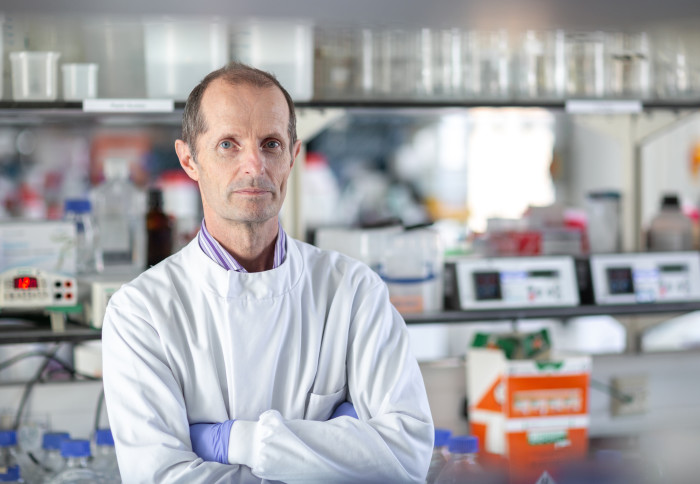Best COVID-19 vaccine 'may not be the first'
by Ryan O'Hare

In a week in which Russia approved its 'Sputnik V' coronavirus vaccine, a leading Imperial expert sounds a note of caution on the need for data.
In the search for a vaccine against the coronavirus, our focus should be on the best vaccine, not just the first to become available, says Imperial’s Professor Robin Shattock.
Speaking to BBC Radio 4’s Today programme this week, Professor Shattock, said: “Everybody is very obsessed about the ‘first’ vaccine, but the first may not be the best. What we need is a vaccine that works extremely well and is widely available.”

“We need everybody working together so that we can have a globally available vaccine, rather than looking at nationalism over particular candidates,” he added.
The immunologist, who leads Imperial’s COVID-19 vaccine research, made the comments in response to news of Russia’s approval of a COVID-19 vaccine – despite any publicly available information on its design, or evidence it’s safe or effective.
He told Today: “We don't know whether [the Russian vaccine] is competitive…because we haven't seen any sight of the data...If this is a good news story, there's no reason not to make the data available as quickly as possible.”
“The science may be very good,” he added: “Hopefully we'll be able to see the data soon and give it good scrutiny and see how it compares.”
Multiple candidates
Also this week, the UK Government announced it would bolster its stockpile of coronavirus vaccines, securing millions of doses of two candidates in clinical trials: an Adenovirus-based candidate developed by Janssen, and a protein-based vaccine developed by Novavax.
There are currently more than 30 COVID-19 vaccines in human trials around the world, including Imperial's candidate.
The Imperial vaccine remains one of only a few based on a new approach, using RNA. If successful, it could lead to medical and technological breakthrough in the global effort to accelerate the production of vaccines against emerging threats, such as the SARS CoV-2 coronavirus.
Speaking to Wired magazine, Professor Shattock explained a key advantage of his team's saRNA platform is that it could be adapted quickly to any viral threat. “It’s very much plug-and-play with the genetic code," he said.
But along with safety and efficacy, equitable access will be a key factor in rolling out any vaccine globally. Imperial may be well-placed, thanks to a social enterprise established earlier this year to accelerate the development of low-cost vaccines and distribute them as widely as possible in the UK and overseas, including to low- and middle-income countries.
Professor Shattock told Wired: “Even if a vaccine comes first and countries with deep pockets line up to buy it, we can still make vaccines accessible for low-income countries."
See the Imperial COVID-19 Vaccine Trial and COVID-19 Response Fund webpages for further information.
-
Listen to the full interview on the Today programme on BBC Sounds - https://www.bbc.co.uk/sounds/play/m000llw0 (from 2h 41m 15s)
Read the full feature in Wired magazine: 'This coronavirus vaccine would be two breakthroughs in one'
Article text (excluding photos or graphics) © Imperial College London.
Photos and graphics subject to third party copyright used with permission or © Imperial College London.
Reporter
Ryan O'Hare
Communications Division